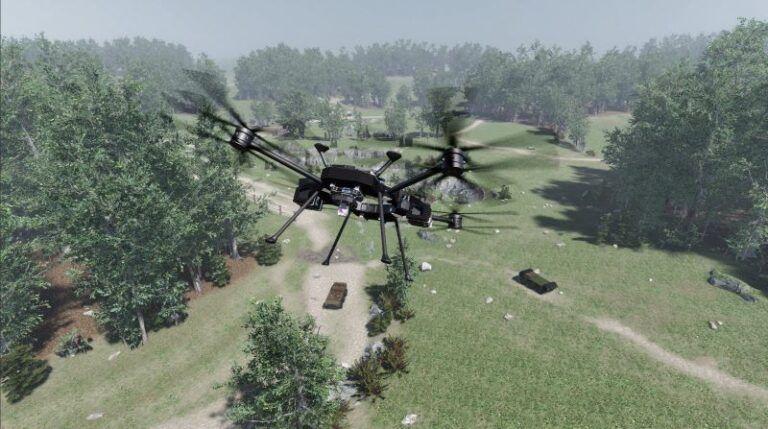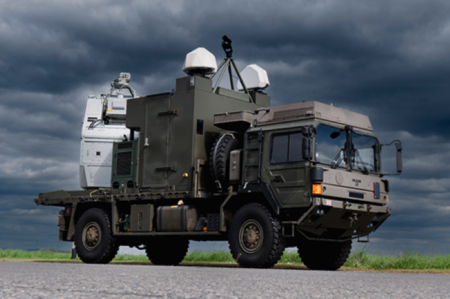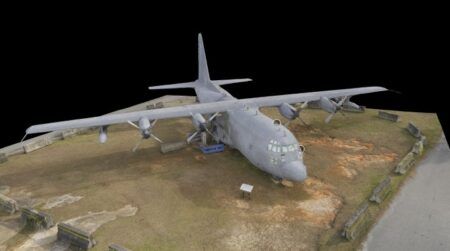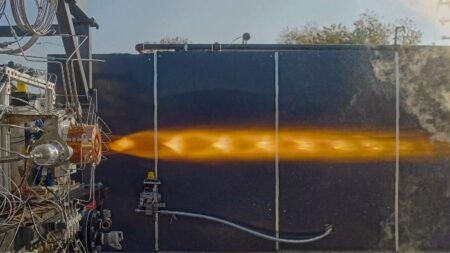The UK’s Defence Science and Technology Laboratory has contracted a consortium of companies including Thales to develop the interfaces and architectures needed for manned and unmanned ground and air vehicles to work together.
Thales is working with the SMEs Catalyst, which creates synthetic environments and Digital Concepts Engineering (DCE), a robotics and automation company to create a hybrid test and experimentation environment, including a digital twin. The hybrid test environment and digital twin will allow operators and researchers to plan and test new concepts, systems and architectures in the virtual and physical domains.
The Land Robotics and Autonomous Systems Ecosystem of Digital Twin Development and Experimentation (Land RAS EDT) project will initially be designed to enable the exploration of RAS in the beyond visual line of sight (BVLOS) reconnaissance role. It will also provide a platform for better understanding the contribution of RAS to the UK Army’s intent to fight by recce-strike at all levels.
The contract from the Defence Science and Technology Laboratory (Dstl) will see the first use of the digital twin system early next year in live trials, operating air and ground unmanned systems from a manned platform in a Recce-FIND role. This will also incorporate AI and Thales’ DigitalCrew system, which aims to improve the use of unmanned systems and reduce the burden to key decision-makers on the battlefield.
The digital twin environment aims to enable the integration of virtual and live systems from dispersed locations, better enabling early system of systems integration and testing at system and sub-system level.
Enabling early experimentation in the virtual domain will allow for more effective multi-domain integration through the evolution and extension of existing open architectures and research in the combination of crewed and uncrewed systems. This will reduce the risks, costs and timescales associated with the introduction of new systems and concepts into the armed forces through embracing spiral development, said Thales.
Guy Powell, principal advisor – land autonomy, Dstl said, “Robotic and Autonomous Systems are transforming warfare, but are rapidly evolving. The open and modular architectures developed in this project should better enable the Army to rapidly adapt and integrate emerging RAS technologies with in-service platforms such as Ajax at the pace of relevance.
“This, together with the use of digital twin environments, should provide a critical enabler to reduce risks, costs and timescales associated with integration and spiral development of RAS capability into the force.”
Stephen McCann, managing director, Thales in the UK, said, “In recent times, the growing significance of autonomy and artificial intelligence has become increasingly apparent, reshaping the landscape of security strategies worldwide.
“This important research partnership between Dstl, Thales and multiple SMEs will advance the UKs understanding of Digital Twins and open architectures and explore how crewed, optionally crewed and uncrewed systems can co-exist in complex, multi-domain architectures.”





